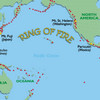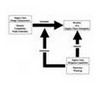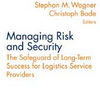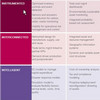 Rewind your thoughts one year: Iceland. Volcano eruption. Air travel. Then look at today’s news. Are we facing yet another volcanic ash cloud crisis? It would seem so, as airlines have already begun cancelling flights in and out of Northern Europe, including Scotland. The big question is, have we learned last year’s lessons or will this be another scramble to the rescue sort crisis management? So, what did happen last year, and what did travellers do? That is what the Norwegian Institute of Transport Economics investigated and wrote up in a report called Air travel disruption after the volcano eruption in Iceland – Consequences for Norwegian travellers and businesses in Norway, published in late 2010. While the report is written in Norwegian, there is a three-page English summary, from which much of this post content is taken.
Rewind your thoughts one year: Iceland. Volcano eruption. Air travel. Then look at today’s news. Are we facing yet another volcanic ash cloud crisis? It would seem so, as airlines have already begun cancelling flights in and out of Northern Europe, including Scotland. The big question is, have we learned last year’s lessons or will this be another scramble to the rescue sort crisis management? So, what did happen last year, and what did travellers do? That is what the Norwegian Institute of Transport Economics investigated and wrote up in a report called Air travel disruption after the volcano eruption in Iceland – Consequences for Norwegian travellers and businesses in Norway, published in late 2010. While the report is written in Norwegian, there is a three-page English summary, from which much of this post content is taken.
What will happen in 2011?
First, before I get to the report, here is an update on today’s situation. Norway and the UK among the first to be hit, again, and the outlook is grim, judging by the latest ash cloud forecast:
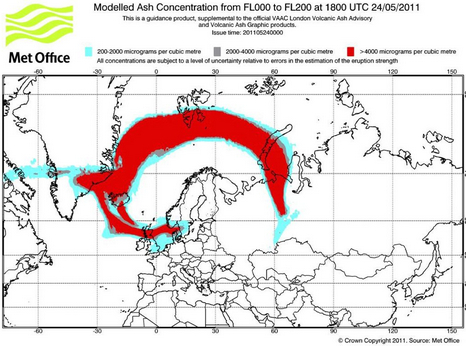
Eurocontrol, the European Organisation for the Safety of Air Navigation, is quite active on Twitter now, check out @eurocontrol. That is a marked improvement over what happened last year.
What happened in 2010?
Back to report. It presents the consequences of the April 2010 air travel disruption for Norwegian travellers and businesses in Norway, how travellers and businesses acted in response to the air travel disruption, and what measures they consider to take in protection against similar disruptions in the future. The Institute of Transport Economics carried out three surveys in May and June 2010, focusing on the air travel disruption: One among air travellers (2973 participants), one among business managers (1000 participants), and one among travel managers (99 participants).
The air travel disruption caused serious problems for travellers and companies while it lasted, but it does not seem to have had significant consequences in the long run. Both travellers and companies say they will choose destinations reachable by other means of transport than air planes more often, or travel more often by other means of transport in the first place. Business travellers and companies will also use tele- or video-conferencing more often. However, according to air traffic data we fly more than ever after the air travel disruption.
Obviously, the volcanic ash cloud did make a severe impact and did affect many travellers and businesses, it doesn’t seem to have deterred people from flying.
What really happened?
Citing from the report,
Travellers stranded at their destination or on their return journey had no other choice than to find alternative transport for their journey back home. Most of the travellers stranded on their way to the destination turned and went back, but one in four completed the journey to their destination using alternative transport. Many had their flights cancelled before they started their journey, some chose to cancel their booking, and some decided not to book flights they had been planning to book. In most of these cases the travellers postponed the journey or decided not to make the journey altogether.
Cancellations by the airlines affected leisure travellers and business travellers equally. It was more common among leisure travellers to attempt to carry on with the journey if they had already started, to not book a planned flight, and to postpone or cancel a journey altogether if they had not already started. It was more common among business travellers to cancel their booking, but then find alternative transport to make the journey.
Will it work out just as well this time?
Reference
Brechan, I. (2010) Air travel disruption after the volcano eruption in Iceland: Consequences for Norwegian travellers and businesses in Norway. Report 1120/2010. Oslo, Norway: Institute of Transport Economics.
Brechan, I. (2010) Flystansen etter vulkanutbruddet på Island: Konsekvenser for norske reisende og bedrifter i Norge. Rapport 1120/2010. Oslo. Transportøkonomisk Institutt.
Download
- toi.no: Air travel disruption after the volcano disruption in Iceland (English summary)
Author link
- linkedin.com: Inge Brechan
In the news and other links
- bbc.co.uk: Thousands face ash flight delays
- metoffice.gov.uk: Volcanic ash advisory maps
- eurocontrol.int: Eurocontrol’s latest messages on Twitter
For my Norwegian readers
- toi.no: Askeproblemene fort glemt
- vg.no: Askeskyen setter norske fly på bakken
Related posts
- husdal.com: Can we do without air travel?

